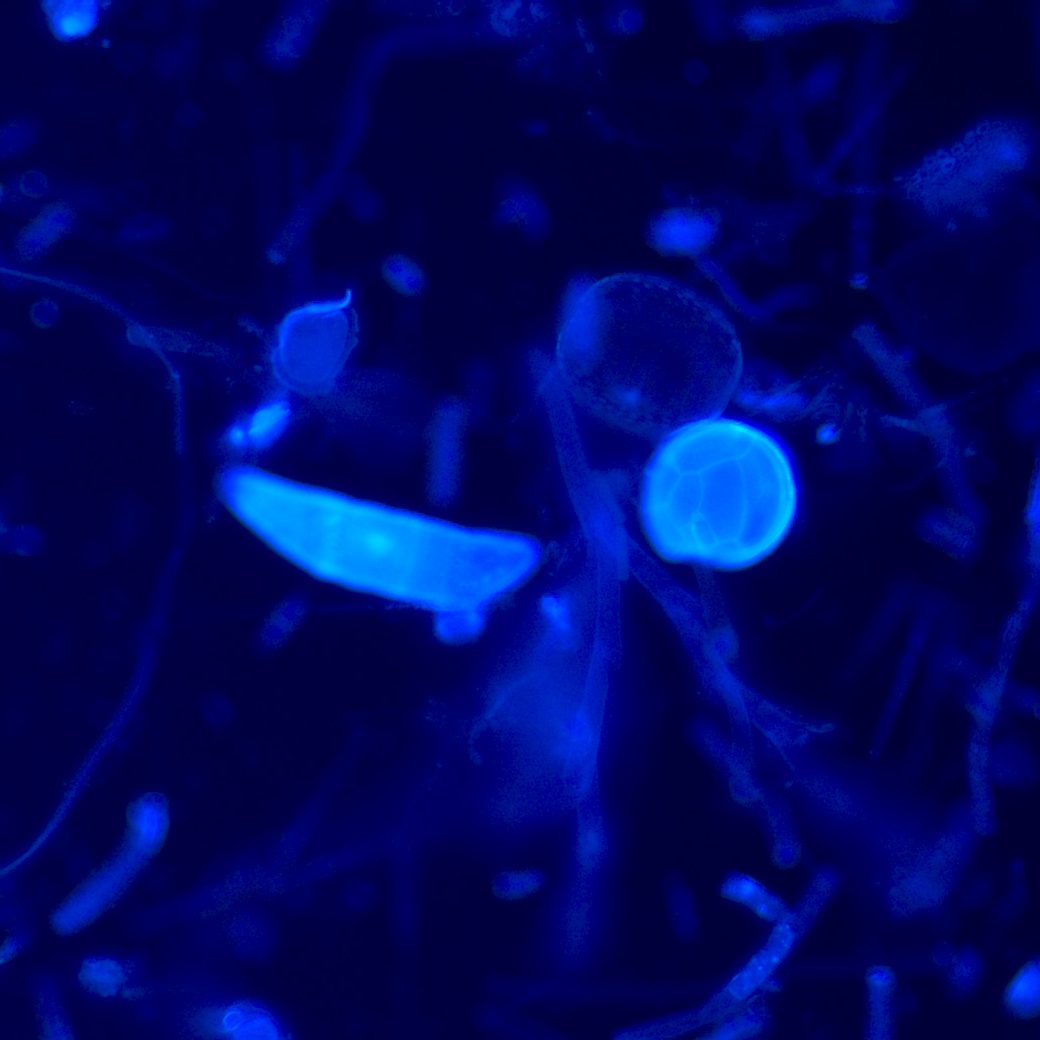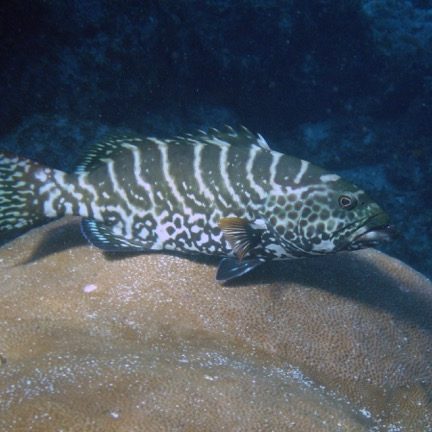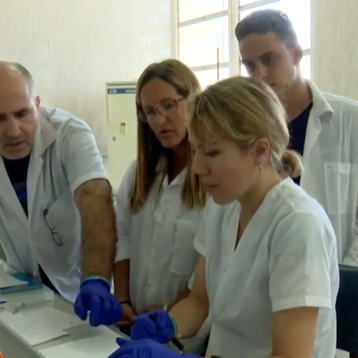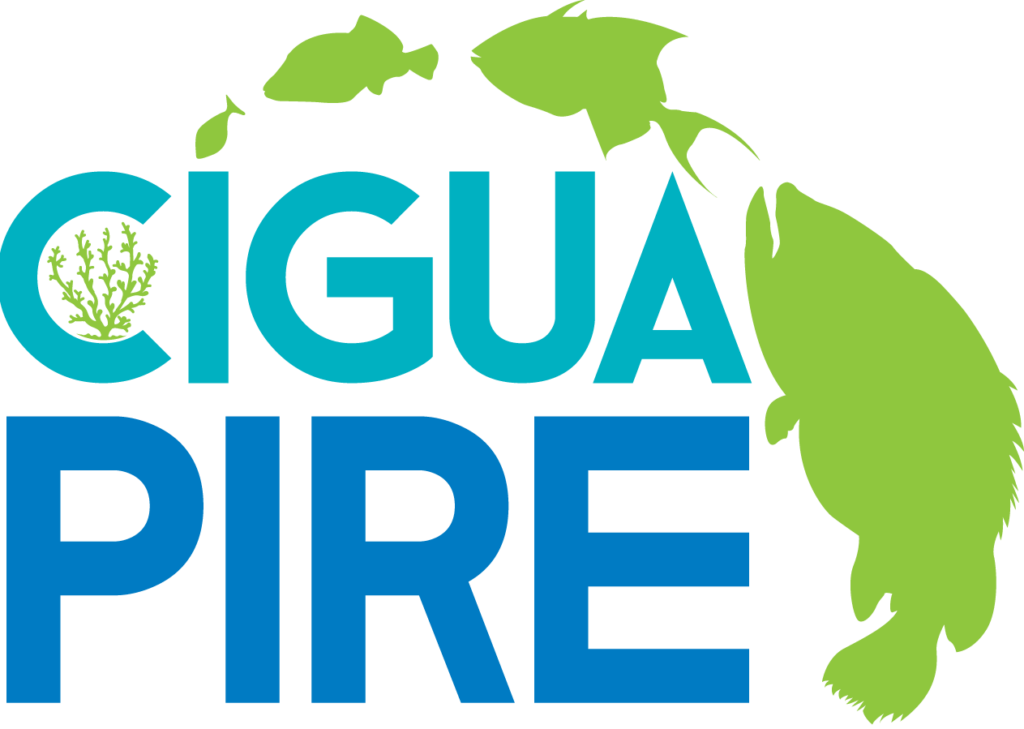Ciguatera Fish Poisoning
Ciguatera fish poisoning (CFP) is the most prevalent phycotoxin-borne illness worldwide. This illness, characterized by severe gastrointestinal distress combined with neurological and cardiovascular symptoms, is caused by ciguatoxins and related precursors produced by the dinoflagellate genus Gambierdiscus. These toxins can accumulate as they move up the food chain, eventually causing sickness in people who consume contaminated marine organisms. We are working to understand the drivers of CFP, with the goal of improving predictive capabilities and preventing future outbreaks of illness.

CiguaTOX: A study of Gambierdiscus "super bugs" and ciguatoxin fate in coral reef food webs
The goal of this project is to characterize ciguatoxin production and flux into marine food webs. A significant challenge to CFP research is the potential for variability of toxin potency between species or strains of Gambierdiscus. Our lab is developing molecular probes which target individual Gambierdiscus species in order to understand the spatio-temporal dynamics of highly toxic strains in the Caribbean. By applying this method to field samples, combined with other molecular methods such as RFLP analysis, we are working to reveal the environmental conditions that facilitate toxicity. This research will be integrated into a risk model which will allow prediction of toxin entry into the food web, ultimately informing management strategies.
Funding Agencies
This project is part of the Ecology and Oceanography of HABs (ECOHAB) program funded by NOAA National Centers for Coastal Ocean Science.
Partners/Collaborators
This is a joint project with Michael Parsons (Coastal Watershed Institute & Florida Gulf Coast University), Alison Robertson (Dauphin Island Sea Lab), Tyler Smith (University of the Virgin Islands).
Related Papers
- Parsons, M.L., Richlen, M.L., Smith, T.B., Anderson, D.M., Brandt, A., Erdner, D., Robertson, A. CiguaMOD I: a conceptual model of ciguatoxin loading in the Greater Caribbean Region. Harmful Algae, vol. 131, 2024, p. 102561, https://doi.org/10.1016/j.hal.2023.102561
- Richlen, M.L., Horn, K., Uva, V., Fachon, E., Heidmann, S.L., Smith, T.B., et al. (2024). Gambierdiscus species diversity and community structure in St. Thomas, USVI and the Florida Keys, USA. Harmful Algae 131, 102562. doi: 10.1016/j.hal.2023.102562

Center for Oceans and Human Health (COHH)
This project will investigate how climate change, particularly warming sea temperatures, will influence the geographic extent and population dynamics of Gambierdiscus in the Greater Caribbean Region. We will use innovative experimental approaches to examine the impacts of temperature, including field investigations of local adaptation within and dispersal between Gambierdiscus sub-populations using RADseq (Restriction site-Associated DNA sequencing). These efforts will complemented by laboratory studies investigating the resilience of toxin-producing Gambierdiscus to thermal stress under variable temperature regimes. Results will be used to further develop our ciguatoxin flux model, increasing CFP predictive capability.
Funding Agencies
This project is funded by the NSF and the National Institutes of Health.
Partners/Collaborators
This is the first of three projects funded under the COHH program.

PIRE: Linking the chemical and biological diversity of epiphytic dinoflagellates in tropical oceans, advancing global understanding on the origin of ciguatera
This program involves a coordinated effort to standardize and share methods for CFP research across institutional and international borders. The international PIRE team comprise six U.S. institutions and engages collaborators from six other countries (Hong Kong, Cuba, Norway, Canada, Scotland, Australia). Our lab is engaging in collaborative and outreach activities which will involve conducting workshops and hosting visiting students. These efforts will contribute to global advancements in ciguatera understanding, as well as the development of the next generation of CFP researchers.
Funding Agencies
This project is funded by the National Science Foundation Pire Program under grant #743802.

Partners/Collaborators
This project is a collaboration with Alison Robertson (Dauphin Island Sea Lab).